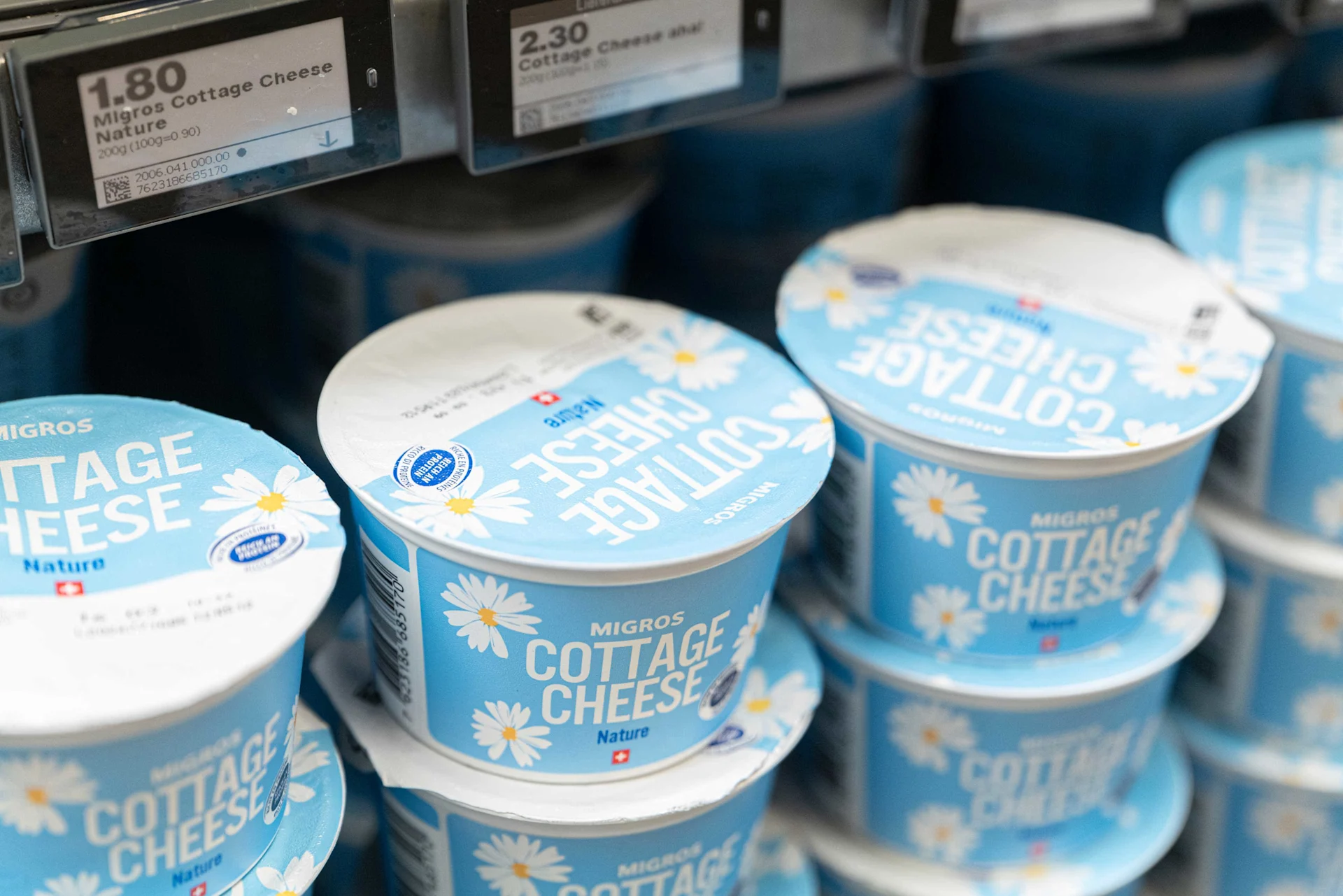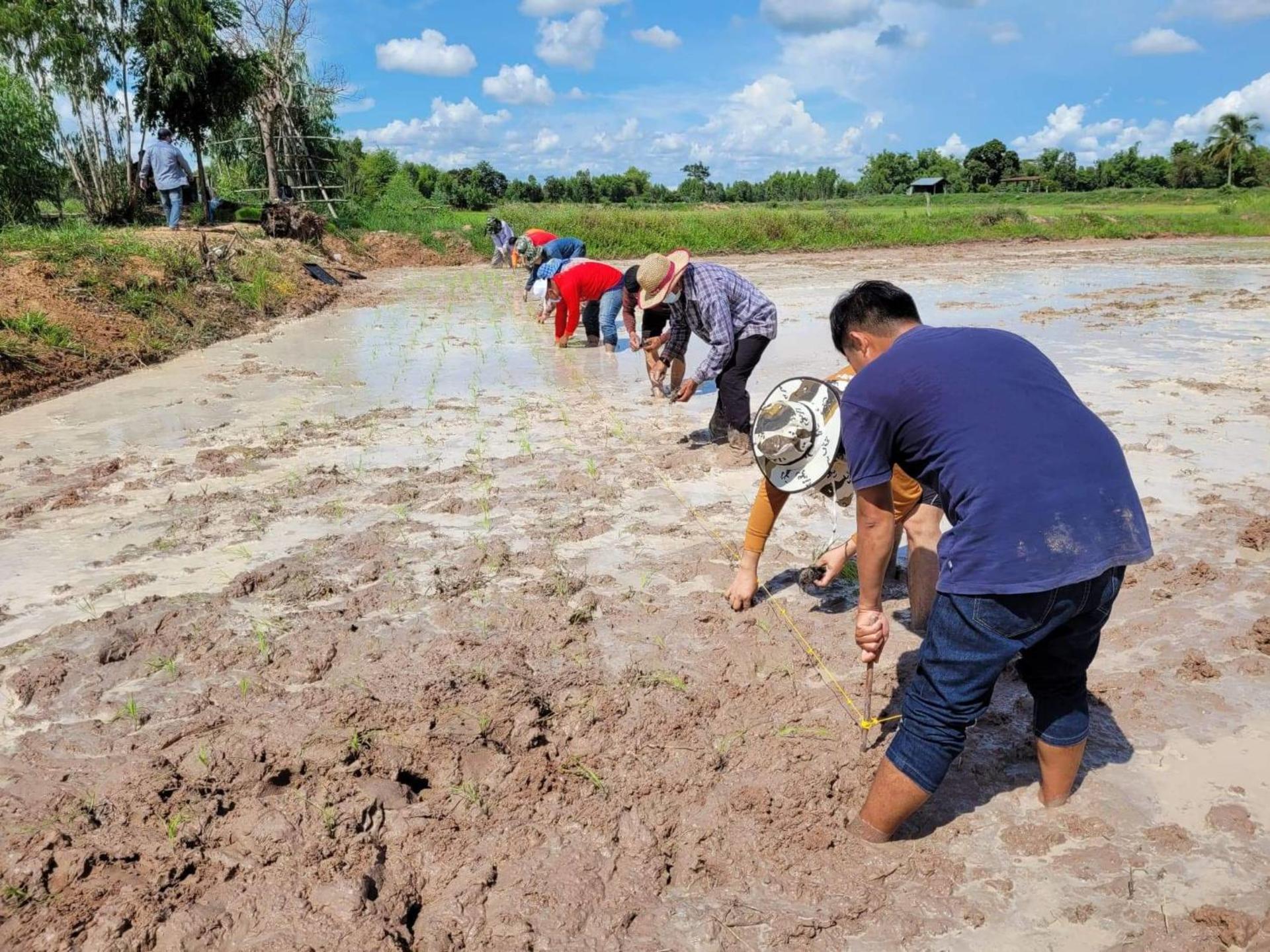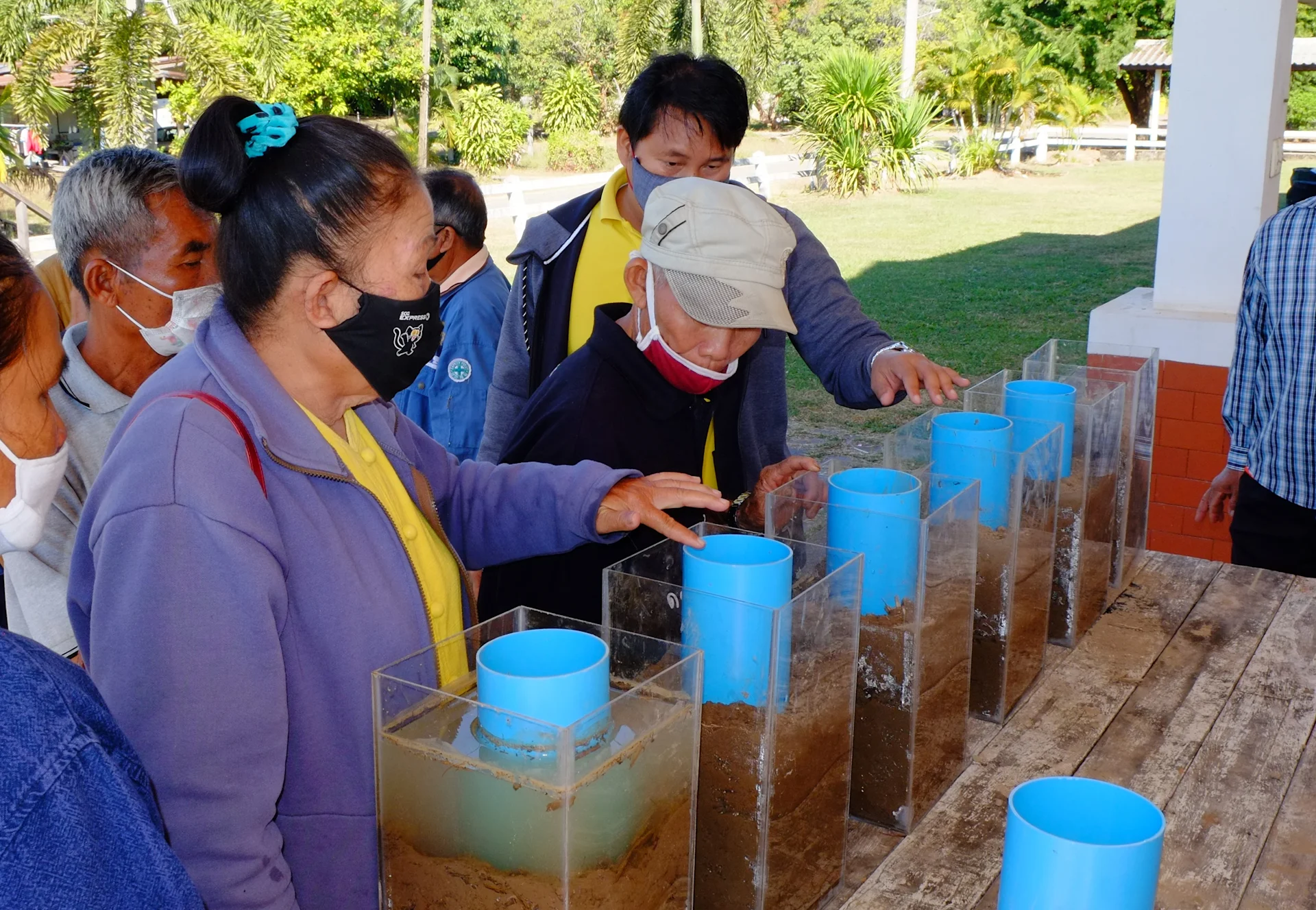
Sustainability
Responsible packaging
Migros is doing all it can to make packaging more sustainable and eco-friendly.
navigation

Sustainability
Rice is one of the most important staple foods in the world, but cultivation brings challenges such as greenhouse gas emissions. An innovative project in Thailand supported by Migros shows that there is another way.
Many people around the world eat rice every day. The people of Switzerland also enjoy rice as a regular part of their diet. However, many consumers are not aware that conventional rice growing emits huge amounts of greenhouse gases. The worldwide impact is enormous: eleven percent of global methane emissions are due to rice cultivation.
This is because in conventional wet cultivation, the rice paddies are permanently flooded. Bacteria grow in the stagnant water and release methane, which is harmful to the climate. Moreover, a single kilo of rice consumes 2,000 litres of water.
So it’s clear what a striking difference more sustainable rice farming can make to the climate. That’s why Migros is supporting an innovative method of growing climate-friendly rice in eastern Thailand’s Sakon Nakhon province.
What is known as the system of rice intensification (SRI) is based on alternating irrigation and drying of the soil. This reduces the amount of methane that is released into the atmosphere.
With this project, we are now also using a more climate-friendly method for traditional rice cultivation. This can save greenhouse gas emissions as well as water and pesticides.
Fewer greenhouse gas emissions: thanks to the new method, methane emissions can be reduced by up to 60 percent.
Less water: water consumption is reduced by up to 50 percent.
Fewer pesticides: the new method not only saves on costly and environmentally harmful pesticides, but also requires less crop seed.
Higher yields: overall crop yields are increased in the medium term.
Higher income: more crop yields and less crop seed permanently increase the net income of farming families.

Currently, about 1,000 farmers’ families are being trained in this new cultivation method. In addition, the project provides participating families with the necessary equipment and machinery. Nevertheless, the conversion is a bold step for them, especially when the family’s livelihood depends on the harvest. The commitment pays off for more than just the environment, however: the families benefit from increased yields and thus from a higher income.
We cooperate with the myclimate foundation in the implementation of the project. This ensures that greenhouse gas reductions are actually achieved. The project will also be certified to the Gold Standard.
Sustainability is part of our culture and we still have plenty more on our agenda. Learn more about it in our Stories!